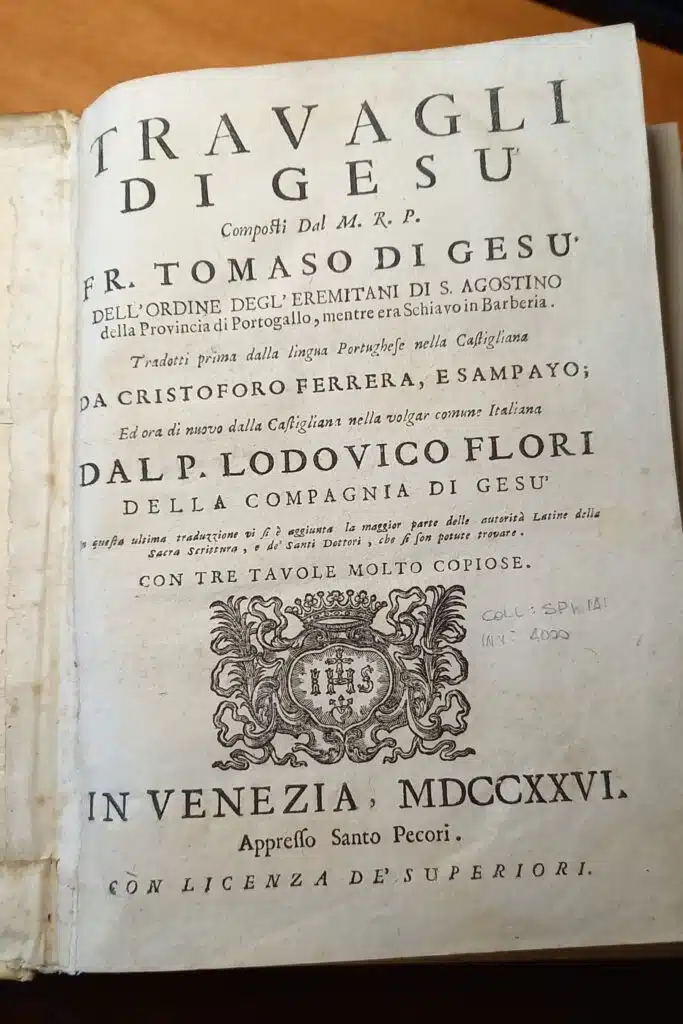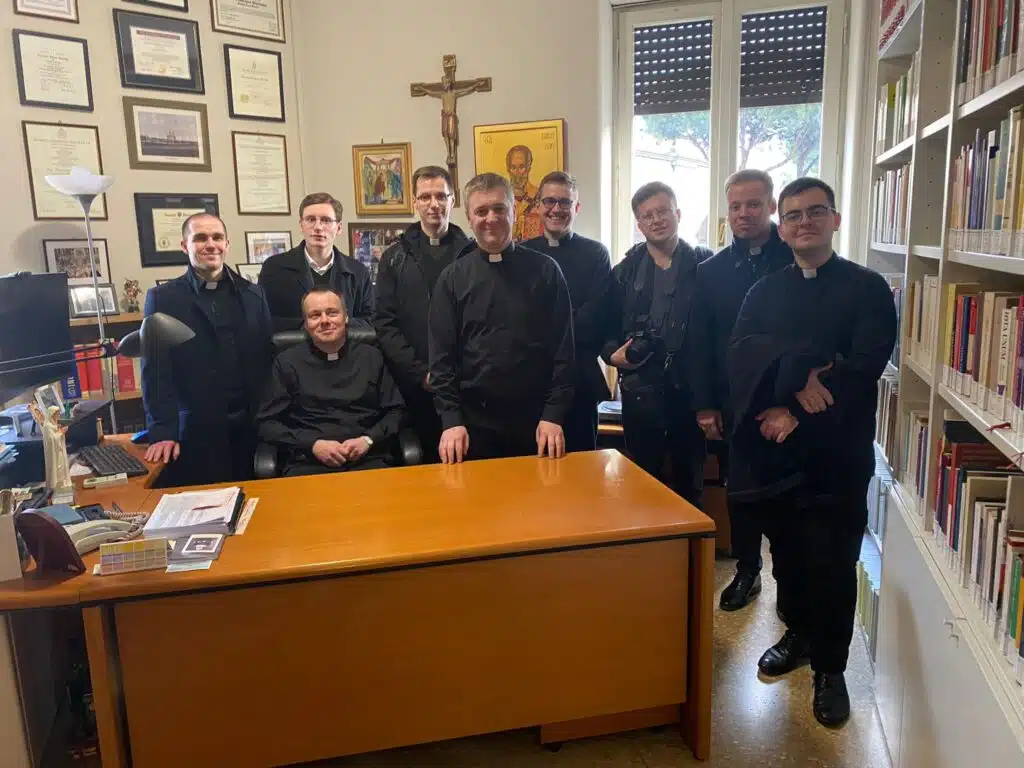National Library Week: Human Life International Showcases Rome’s Hidden Gem of a Library
Contact: Tom Ciesielka, TC Public Relations, 312.422.1333, tc@tcpr.net
(April 10, 2024 – Front Royal, Virginia) During National Library Week, April 7th through the 13th, while many book lovers focus on great stories, Human Life International turns its attention to their Rome library, a hidden gem close to the Vatican. This openly and uncompromisingly pro-life and pro-family library contains more than 7600 volumes specializing in topics related to the Culture of Life, including but not limited to abortion, euthanasia, contraception, assisted fertilization techniques, marriage, transhumanism, gender ideology, and homosexuality. The Human Life International Rome library also boasts a large section focusing on theology, moral theology, philosophy, bioethics, Catholic doctrine, and the Doctors of the Church.
In an ever more digital age, Human Life International’s Rome library does make some electronic resources available, but the emphasis is on the hard copies of books. Fr. Francesco Giordano, HLI’s European Regional Director and Director of the Rome office, shared a printed copy of the Travails of Jesus, a 1726 original edition of a Venice-published work by an 18th century Portuguese priest, Fr. Tomaso di Gesu, an item not available in digital form.

Founded in 1988, the Human Life International Rome library draws seminarians, priests, religious, and lay professionals. They come to Rome to seek original source material for a thesis, to deepen their understanding on some aspects of Catholic doctrine, or for their own spiritual formation.
Human Life International Rome has selected what Father Giordano calls “the best publications in bioethics, theology and moral theology.” He names the library’s collection of Bioethics encyclopedias, the works of St. Thomas Aquinas, the Papal Teachings, and the Enchiridion Vaticanum as being the most valuable, along with many published works no longer in print.
Father Giordano recounts the story of a Catholic priest who came to Human Life International Rome seeking the bioethical knowledge to combat “thalaikoothal,” or “elder killing,” which is common among poor communities in southern India. In the stacks of the Rome library, Fr. Shanu Fernandas Mattummal found the necessary Church writings and research documentation to effectively oppose the well-promoted population control agenda and encourage the ethical and moral practice of palliative “comfort” care.
Also from the subcontinent, Fr. Antony Joby came to the Rome library seeking the best ways to build a pro-life culture in a region that is predominantly non-Christian. He believed that false perceptions of Church teaching cause others to view it as an instrument of hate and oppression. Joby saw the “beauty of true Church teaching on life and family” as the “antidote to a lonely and self-centered culture of death.” The Human Life International Rome library helped him to construct a plan to change hearts and minds.
Not all who visit the library are priests. Father Giordano tells of an ambulance driver named Michele Santini, who with hospital colleagues, often found himself on the front lines of ethical dilemmas in the face of legalized abortion and euthanasia. Desiring to defend Catholic teaching on human life and dignity, he visited the Human Life International Rome library. After his study of the library’s original sources, Michele left with a better understanding of bioethics which enabled him to explain his life-affirming beliefs to his coworkers.
Father Giordano is not only the library’s chief supervisor, but he also relies on the available research to undergird his professorial work at the Pontifical University of St. Thomas Aquinas, often referred to as the Angelicum, and the Catholic University of America Rome Program. Father Giordano finds the Rome library to be “extremely useful because of the texts we have at our disposal to enrich the lessons.”
The library was not initially planned, Father Giordano explained. Originally intended only to serve as the headquarters of Human Life International in Rome, the library developed under Msgr. Ignacio Barreiro-Carámbula. Described by others as a “generous man of vast culture and an avid reader,” Carámbula conceived and opened the library, which even today remains free for users.
Human Life International President, Fr. Shenan Boquet, observed that the Rome library fills an important need, saying, “Despite the large number of students who pursue advanced degrees in bioethics in Rome, there are few libraries with adequate research material.”
Nestled in a 1950s apartment building a short walk from St. Peter’s Square, Human Life International’s Rome library allows patrons a window view of Michelangelo’s Dome at St. Peter’s Basilica. Around 100 patrons visit the library each month, according to Human Life International, to “get between the covers” of its curated collection of significant books. The Rome library’s proximity to the Vatican allows Human Life International to serve and collaborate with Vatican officials, even as Father Giordano directs the global pro-life ministry’s work throughout Europe.
Father Giordano reports that the Rome library’s most consulted volumes include Personalist Bioethics by Cardinal Sgreccia, The Global Sexual Revolution by Gabriele Kuby, the Enchiridion on Family and Life, the writings of the Popes, and the Summa Theologica. He noted that The Human Life Review and The National Catholic Bioethics Quarterly are also popular among the library’s visitors. Father Giordano added that Human Life International’s published materials, such as A Pro-Life Pastoral Handbook by Brian Clowes and Being a Father by Msgr. Dominique Rey, are also in the collection.

About Human Life International
Human Life International is the only US-based authority on global life issues, including abortion, contraception, and end-of-life concerns. Human Life International is engaged in providing aid, training, and advocacy around the world and is the largest global pro-life organization, active in more than 100 countries on six continents. Human Life International provides resources and education on life issues from a Catholic perspective, while providing assistance around the globe, and prepares those training for and those active in ministry to address these matters in their vocation. For more information, visit hli.org.

